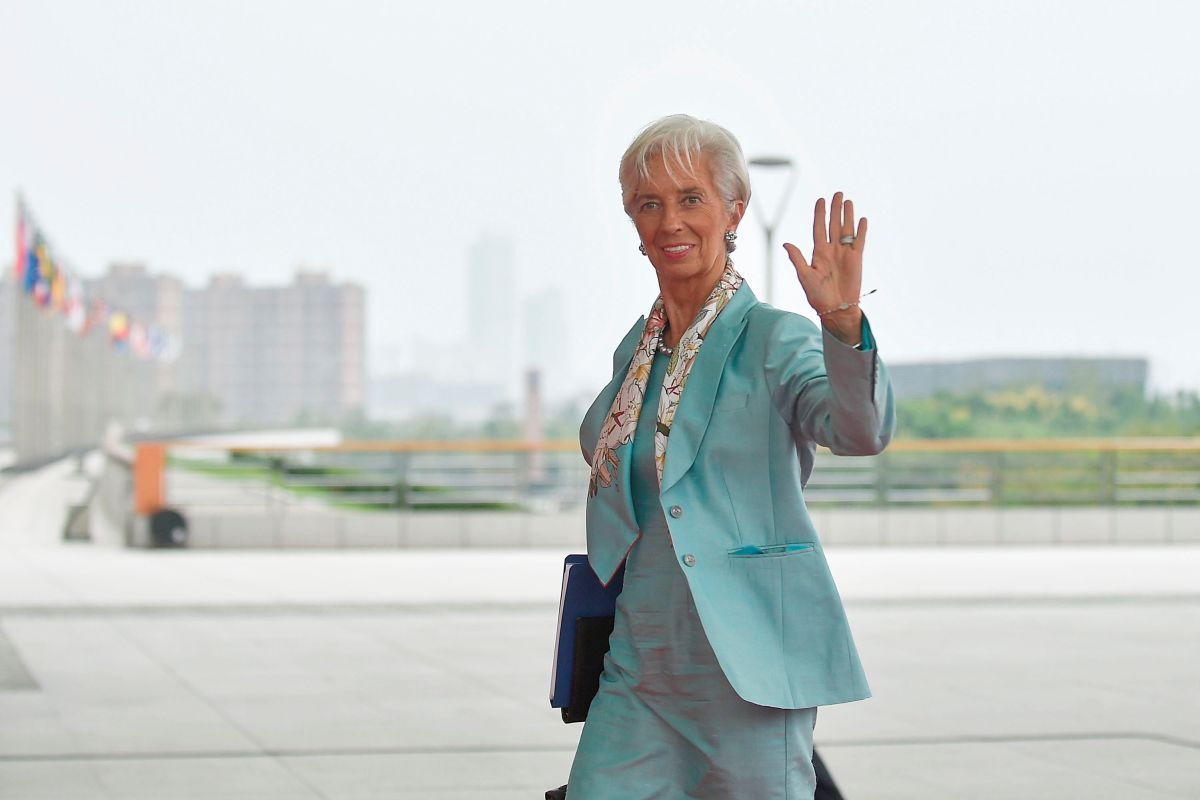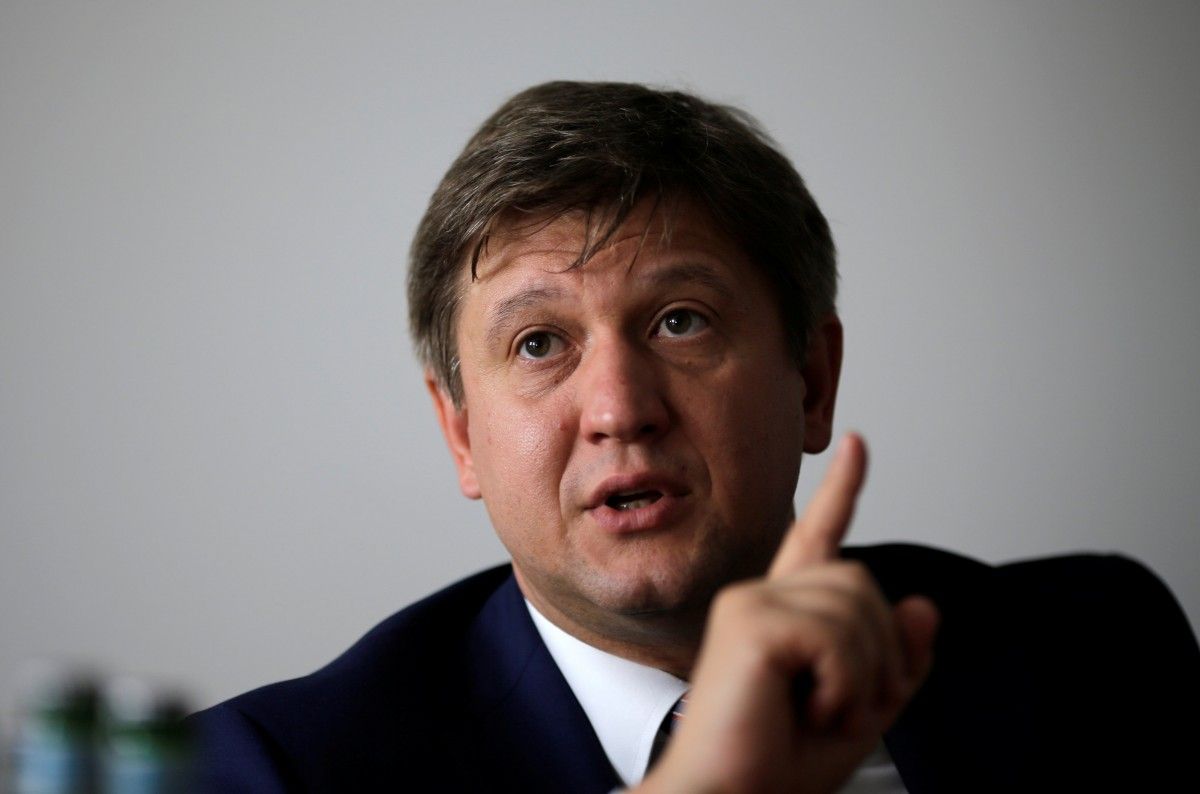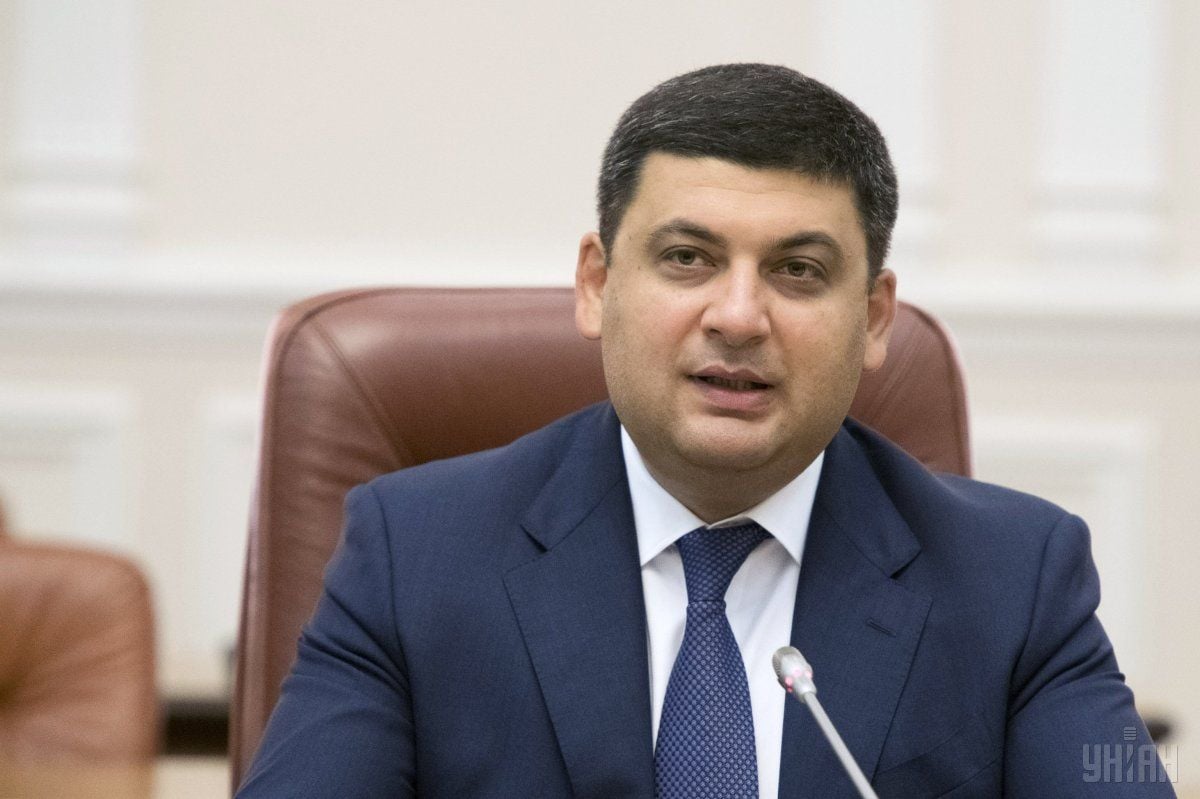
Week’s balance: IMF tranche, slap in Russia’s face, and "honest budget"
Executive Directors of the International Monetary Fund decided to disburse the third tranche of the loan for Ukraine, the National Bank eased forex restrictions and lowered the discount rate, while the Government has tabled in Parliament a draft budget for 2017- these are the main economic news of the past week.
The main news of the past week was the long-awaited decision of the IMF to continue cooperation with Ukraine and allocate the third tranche of the loan amounting to $1 billion. The IMF kept even the outstanding optimists anxious, having reported on its positive decision late at night Kyiv time.
Anticipating a positive decision of the IMF for Ukraine, President Petro Poroshenko even crossed himself in a rare religious move during one of his public appearances, thus evidencing the fact that the Ukrainian authorities were not 100% confident in the IMF loan approval.
And immediately after the IMF Executive Board, the President did not even wait for the official announcement of the Fund, being the first to deliver the good news on Twitter. "Just now, the IMF Executive Board adopted a positive decision to extend the program of cooperation with Ukraine and to disburse financial assistance," Poroshenko tweeted.
The importance of the tranche allocation for the country and the fact of continued cooperation with the Fund can hardly be overestimated. The decision on the allocation of funds was made after more than a year-long break in relations between Ukraine and the IMF, provoked mostly by the political events in the autumn of 2015 and winter-spring of 2016. In these periods, the government was changed in Ukraine and a number of unpopular social reforms were implemented, while the IMF continued to negotiate, delaying their decision.
One of the reasons for the suspension of a cooperation program was a problem with the launch of the system of electronic declaration, which started its work on September 1. This actually influenced the positive decision of the IMF and the disbursement of the tranche. The Fund also noted the first signs of the recovery of Ukraine’s economy.
The IMF managing director, Christine Lagarde, has pointed to the pickup of activity in Ukraine, and the decrease of inflation. The country has seen its gross international reserves and bank deposits rising. "This progress owes much to the authorities' program implementation, including sound macroeconomic policies, bold steps to bring energy tariffs to cost-recovery levels, and measures to rehabilitate the banking system,” Lagarde said in her comments following the meeting of the Executive Board.

In addition, the Fund announced that it could consider before year-end the allocation of the fourth tranche for Ukraine. But, according to Lagarde, the main targets for Ukraine should be fiscal sustainability in the medium term and pension reform, the task of which shall be the reduction of the pension fund deficit and stabilization of its operation without increasing the risks of debt in public finance system.
The IMF’s "green light" offers Ukraine access to financing from other official creditors. Before the end of September, Ukraine expects to receive $1 billion in loan guarantees from the U.S. Government and a $500 million loan from the World Bank for gas purchases by Naftogaz. And if the Rada passes the bills required, particularly the bill on the independent energy market regulator, the European Union before the end of the year will allocate EUR 600 million of public funding.
Sticks in wheels
Only Russia did not share Ukraine’s joy from the allocation of funds. On the eve of the fateful decision of the IMF, head of the Russian Ministry of Finance Anton Siluanov said that Ukraine had not fulfilled all the necessary conditions for obtaining the next tranche, so the Russian side would vote against the allocation of money for Ukraine, although Moscow was aware that it was unable to block the Fund’s decision.
"A conclusion, published by the IMF, says that Ukraine has met all conditions for obtaining the next tranche. In our view, this statement is unreasonable and creates conditions for similar precedents in the future," said Siluanov.
The main argument of the Russian minister remains Ukraine's $3 billion debt to the Russian Federation on Eurobonds issued by the Yanukovych regime. Siluanov recalled that Russia had set a condition that Ukraine had to acknowledge the debt to the Russian Federation as an official one.
"The IMF took this decision. Ukraine has not yet considered this decision," said the Russian minister. According to him, Ukraine should submit proposals to the Russian side on more favorable terms than those put forward before and agreed with commercial lenders.
In response, Ukrainian Finance Minister Oleksandr Danylyuk said, according to the current program of cooperation with the IMF, Ukraine was ready to enter into “good faith” talks with the Russian Federation on the loan settlement.

“Despite the fact that Ukraine in general remains open to the possibility of a peaceful settlement of the dispute, if acceptable grounds are found, Ukraine is confident in its legal position and focuses on preparing for the hearing, scheduled for January 2017," said Danylyuk.
The IMF has backed Ukraine's position, saying Kyiv’s negotiation tactics met the IMF policies. At this, the Fund reiterated that it supported peaceful resolution of the debt issue, calling on the parties to reach a consensus within a constructive dialogue.
Stable hryvnia and "kind" National Bank
Positive news from the IMF allowed last week to stabilize the hryvnia exchange rate. Since the beginning of the week, the hryvnia began to strengthen gradually, and on Friday it overcame the psychological mark of UAH 26 to the dollar, strengthening at the level of UAH 25.85 / USD.
The IMF decision also allowed the NBU once again to ease restrictions on the foreign exchange market, introduced in 2014-2015 to stabilize the national currency.
In particular, the NBU increased the limit of cash currency withdrawal at the cash desks and ATMs to the equivalent of UAH 250,000 per customer per day (against an earlier introduced level of UAH 100,000) Meanwhile, the regulator extended the number of restrictions on the foreign exchange market for another three months, including the previously set limit for cash currency purchases by individuals within the equivalent of UAH 12,000 per day.
At the same time the National Bank allowed the companies to buy foreign currency to repay loans to non-residents in the presence of their own foreign exchange funds in their accounts. The NBU also kept in force the mandatory sale of 65% of foreign currency proceeds and a 120-day monitoring of payments under foreign trade contracts.
The central bank moved toward easing its monetary policy by reducing its interest rate by 0.5 percentage points, to 15% per annum from September 16. The regulator has been lowering the interest rate for the fifth consecutive month.
The NBU said that if the risks to price stability continued to reduce, it would continue to soften its monetary and exchange rate policies to support the recovery of economic growth.
"Honest budget"
The Ukrainian Government last week approved and submitted to Parliament a draft state budget for 2017. It was probably the first time the Cabinet has actually made it within the terms set out by the country’s Budget Code. The finance ministry will officially present the document in the Verkhovna Rada during the next plenary week.
Prime Minister Volodymyr Groysman, who personally led the presentation of the draft budget, dubbed the document as the most honest and transparent one in the history of Ukraine's independence.
According to him, the lay-out of the state coffers for 2017 should be as realistic as possible, based on forecasts of real income and the actual deficit, in order not to destroy the achieved macroeconomic stability in Ukraine.

In particular, the Cabinet laid a 16.7% revenue growth, up to UAH 876.9 billion, and a 3% GDP growth. The state budget deficit in 2017 should not exceed 3% of GDP.
According to the prime minister, the 2017 budget is based on the revitalization of economic growth, while the rate of the main budget-forming taxes will not be increased.
In 2017, the government intends to make active use of its excise income article and to allocate UAH 14.2 billion from this revenue for the repair and construction of roads. Another $1 billion is planned to be attracted from cooperation with international financial organizations.
The defense budget for 2017 will amount to UAH 129 billion, which is UAH 14.5 billion more than last year.
The living wage and minimum wage in Ukraine by December 1, 2017 will increase by UAH 162, to UAH 1,762. Besides, in the near future, the Cabinet plans to introduce the basics of labor pay and pension reforms, to provide for fairer wages and pensions.
The Government is planning to support the Ukrainian agrarians with the introduction of a UAH 5.5 billion program of direct financial support for small and medium farmers. At the same time, Groysman believes that the big agricultural players have sufficient resources and are able to "take care of themselves".
On the restructuring of mines and miners support, the Cabinet intends to allocate UAH 1.8 billion in 2017. It also plans to increase Ukraine’s own gas production and develop energy efficiency programs in order to achieve full energy independence in four to five years.
The government is counting on a professional, high-quality, and non-politicized debate with the MPs on the draft state budget for 2017.
Groysman said that the budget is honest: the figures it contains are backed up with the revenue and expenditure parts. In this context, the prime minister emphasized the importance of not breaking the balance, achieved in this budget.
Ksenia Obukhovska (UNIAN)

